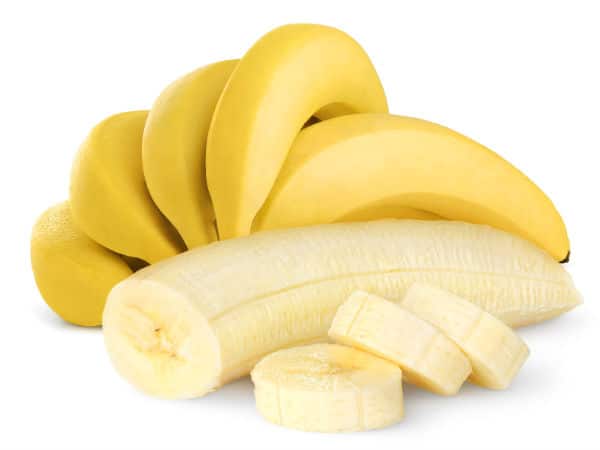Nutrition
Don’t Banish Bananas
Bananas for Health
The mere mentioning of the word is enough to strike fear into the hearts and minds of dedicated low-carbers, ketogenic dieters, and others who have become all but terrified of carbohydrate, in general, and fructose, in particular. And there may, indeed, be patient populations who are better off avoiding bananas most of the time. But it would be misguided to blacklist bananas from everyone’s diet, considering they’re a whole, unprocessed food that millions of people in tropical areas have been consuming for ages, with no detrimental effects on their health.
Bananas are not as nutrient-rich as some other fruits, such as raspberries, blueberries, or pomegranates, but that doesn’t mean they’re nutritionally void. Far from it, in fact. They’re a good source of vitamin C, B6, manganese and magnesium, and bananas (along with potatoes and avocados) are often cited as rich sources of potassium. As for the carbohydrate content, one medium-sized banana (about 7-8 inches long) contains 27g total carbs broken down as follows:
- 3.1g fiber
- 6.3g starch
- 2820mg sucrose
- 5876mg glucose
- 5723mg fructose.
Sure, bananas have more sugar (and fructose) than, say, lemons, but they’re not exactly toaster pastries or cake frosting loaded with high fructose corn syrup. Foods fall along a spectrum, and it’s important to help patients keep a proper perspective.
While individuals who need to strictly control their blood sugar might be well advised to skip bananas, other people might find they fit quite well into their habitual diet, and may even provide instrumental benefit. For example, bodybuilders and other individuals who exercise intensely might find that adding a banana to their post-workout meal may help them replenish glycogen so they’re ready to hit things hard again at their next workout. And while the effects of chronically elevated insulin can be disastrous for many, an acute and transient rise in insulin after a workout can be helpful for shuttling amino acids into muscle tissue and potentially facilitating muscle hypertrophy. (Plus, adding a banana to a protein shake can make it thicker and perhaps more palatable and enjoyable.)
Some people will only eat bananas that are perfectly ripe and 100% yellow, with nary a single speck of brown. Others prefer to wait until banana is a bit over-ripe, and it’s softer and sweeter. (Overripe bananas need not be destined for the trash can or compost bin! They’re a great reason to make grain-free banana bread). Most people avoid eating under-ripe green bananas, but green bananas and the “flour” made from them when they’re dried or dehydrated have some interesting properties.
These are largely due to the presence of resistant starch in unripe bananas, which may influence bowel health, improve obesity and insulin sensitivity, and reduce postprandial blood glucose excursions. Resistant starch is present in many foods, but unripe banana, specifically, has been shown (in rats) to improve insulin sensitivity, ultimately leading to less secretion of insulin from pancreatic islet cells. Overweight women with metabolic syndrome who consumed 20 grams of green banana flour a day for 45 days showed small but noteworthy reductions in fasting blood glucose and systolic blood pressure. (There were no changes in body weight or body composition.)
With the increased awareness of the connections between healthy intestinal flora and physical and mental health, it’s worth noting that unripe banana flour is fermented in the large intestine, producing short-chain fatty acids that may help support bacterial populations in a kind of virtuous circle. The administration of unripe banana flour has such a potent effect on reducing the post-prandial area under the curve for glucose that one study’s authors suggest unripe banana starch could be considered a “functional ingredient.”
For patients who’ve gotten over their fructo-phobia, or perhaps never felt it in the first place, there is plenty of grain and dairy-free ways to use bananas. Consider 3-ingredient banana pudding, banana muffins, strawberry banana “ice cream,” and for a truly indulgent snack, there are chocolate bacon almond butter bananas…hello! (And of course, there are endless variations on the tried and true, banana bread.)
Related DFH Products:
PaleoMeal® Vanilla PaleoMeal® DF Vanilla




